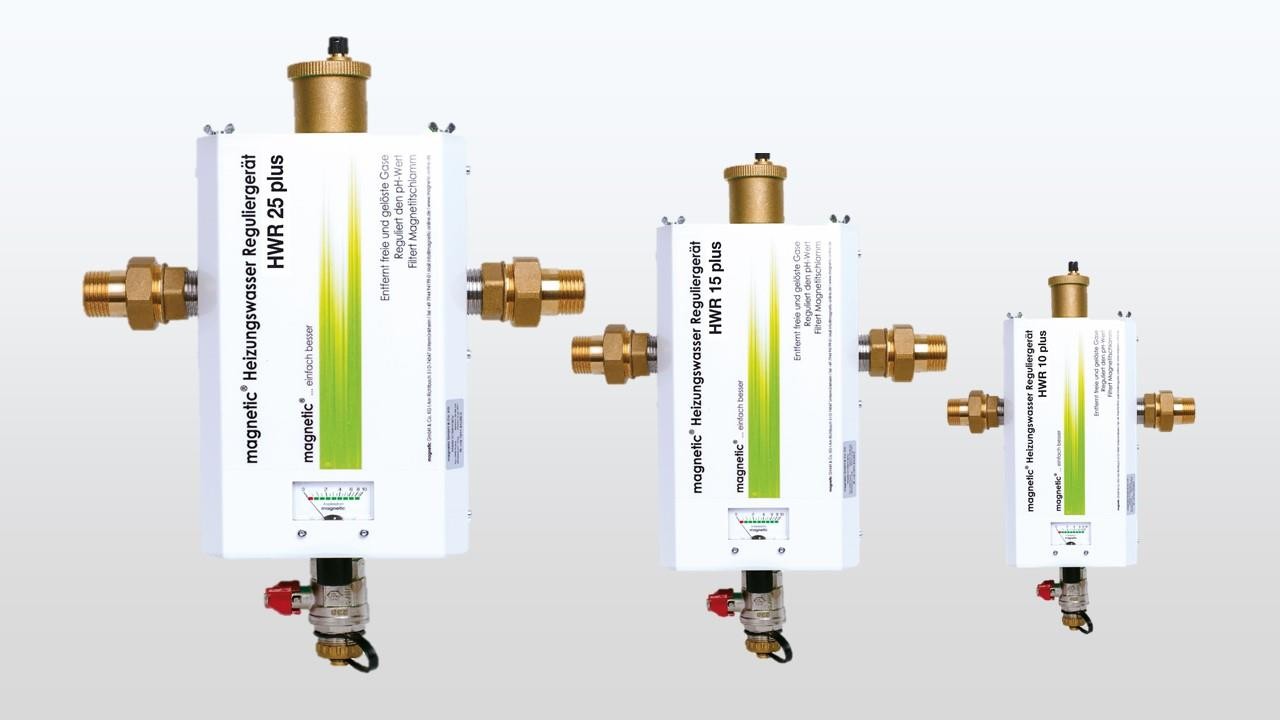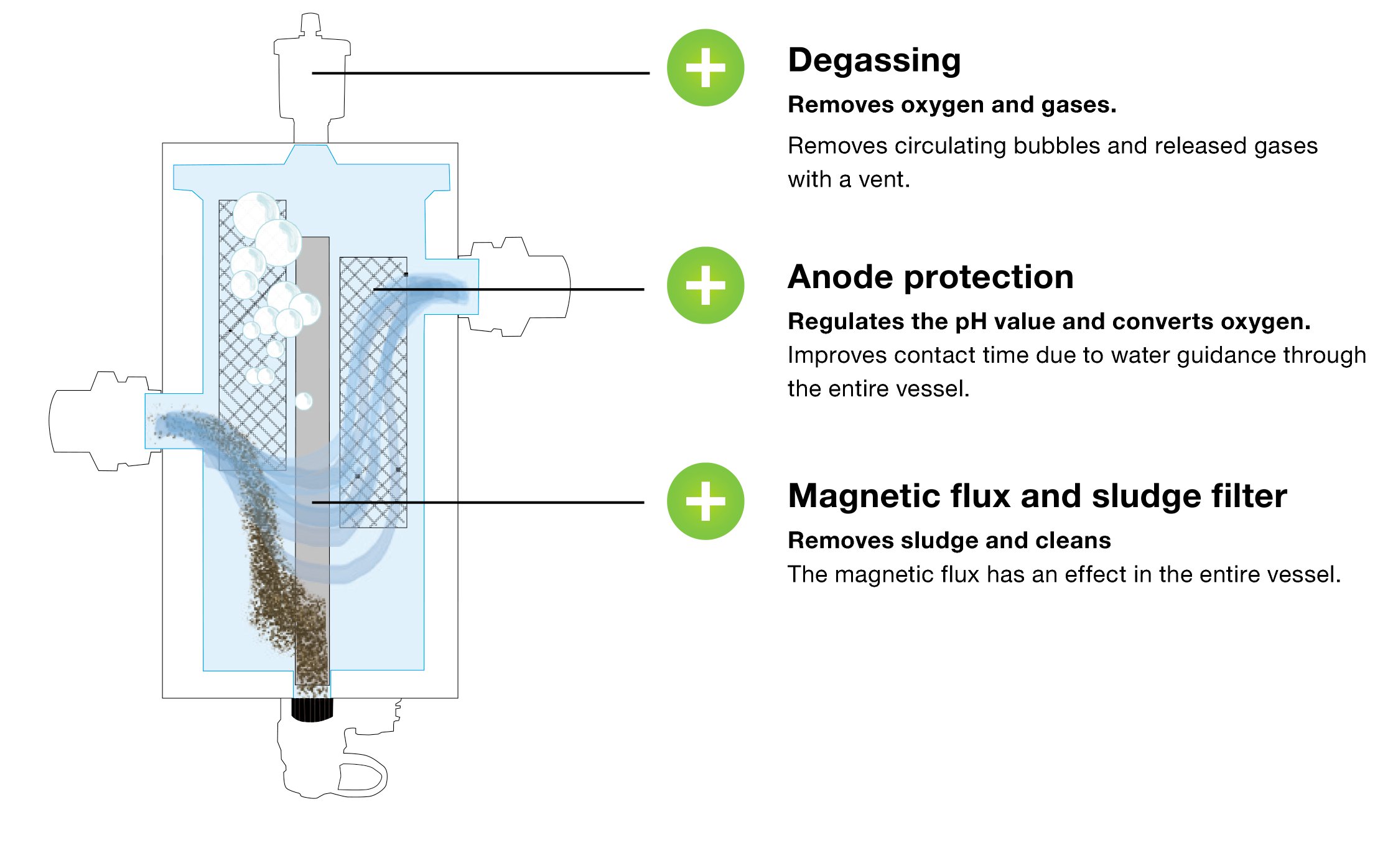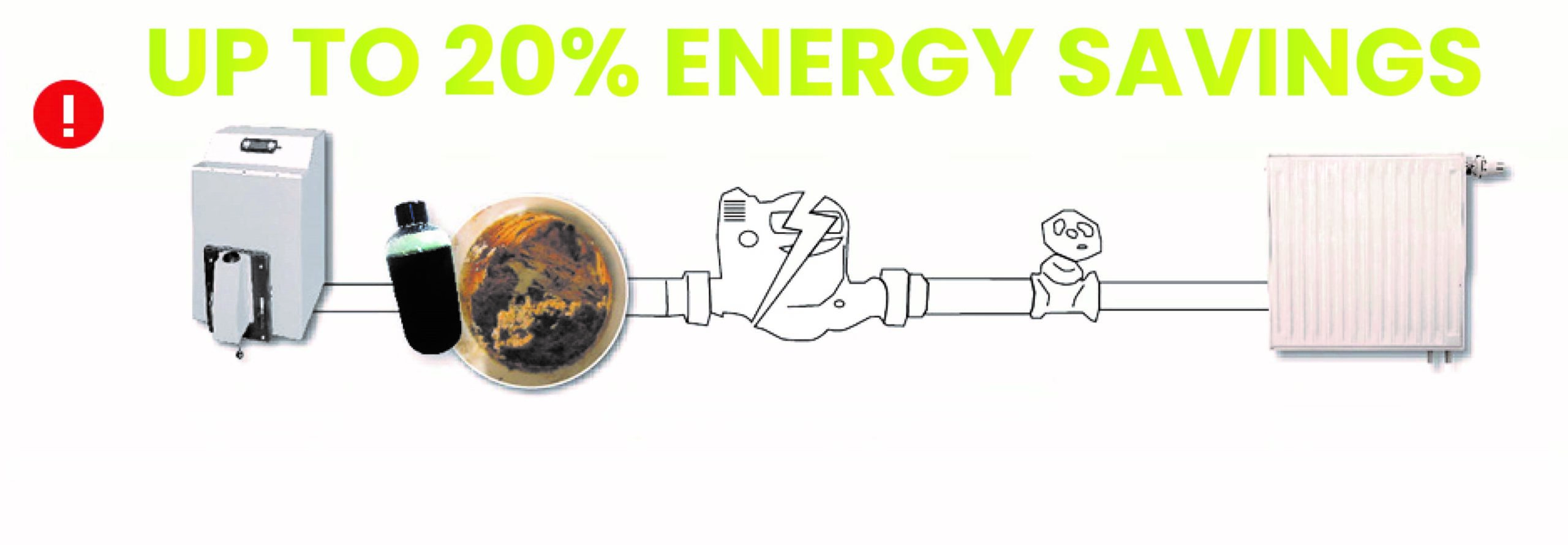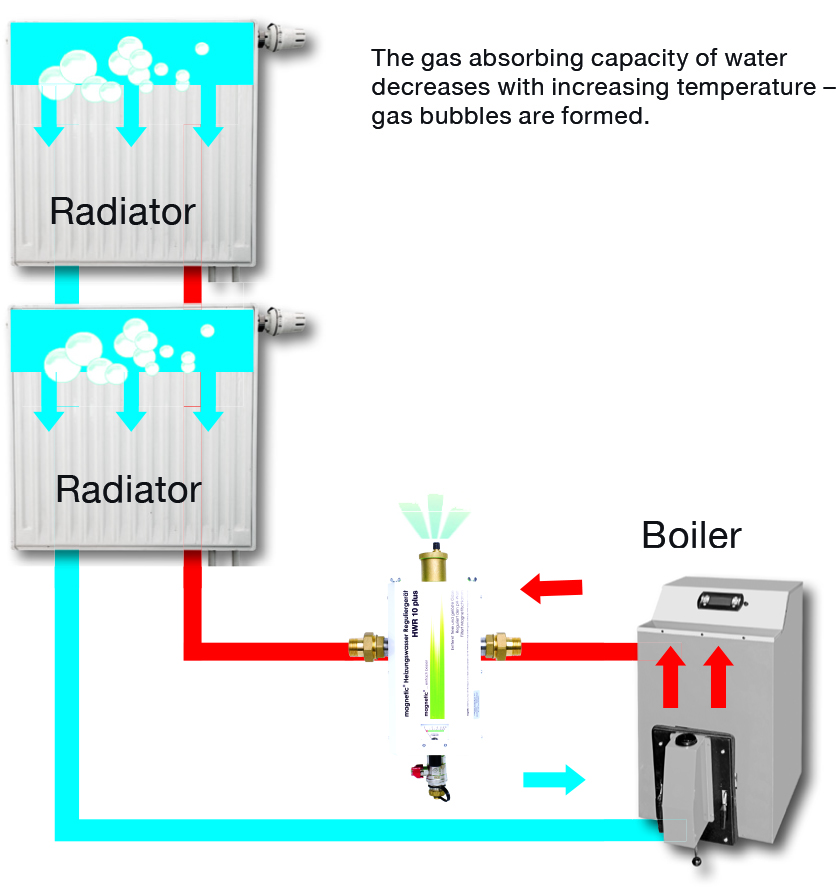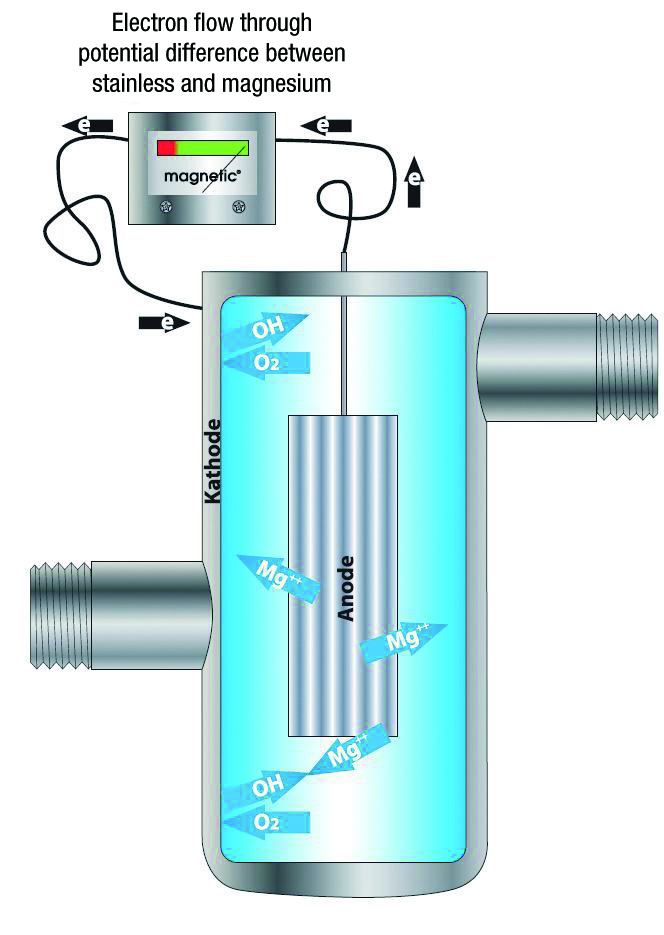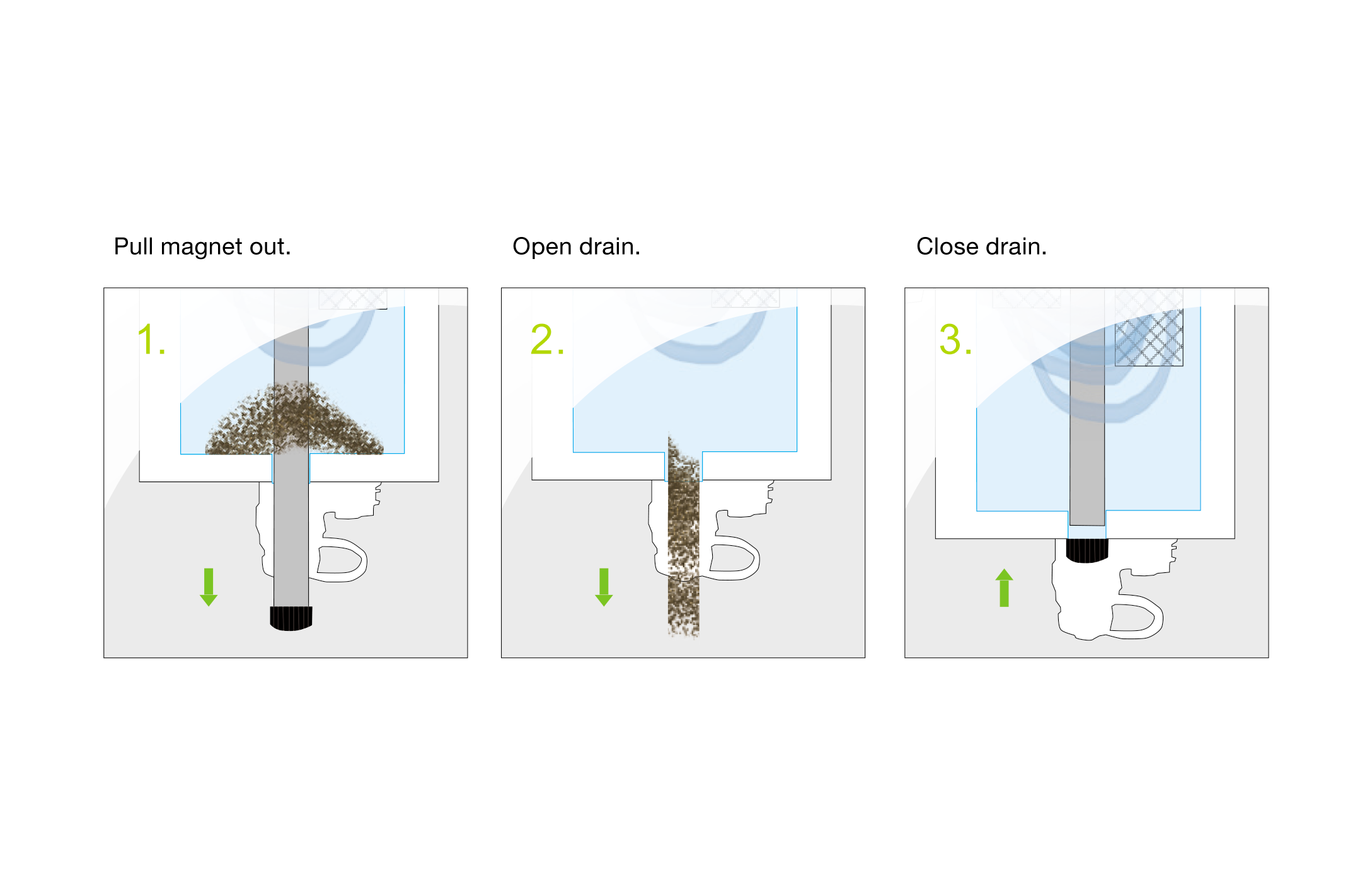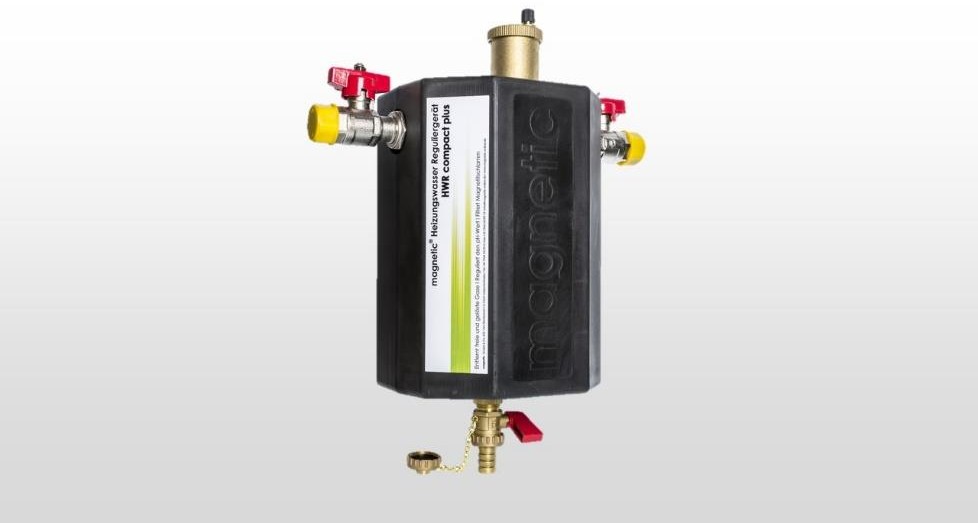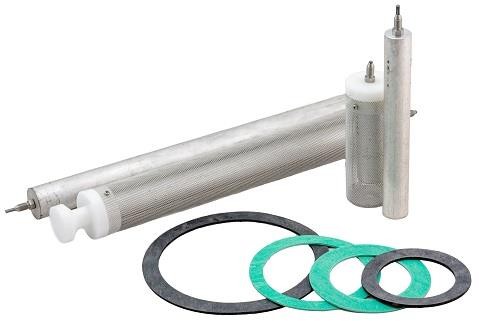Benefits:
- Effective Energy saving through optimal heat transfer
- Protects all components of the heating system against corrosion
- Ensures clear, clean heating water and trouble-free operation
- Removes dissolved gases such as Oxygen from the heating system
- Removes free gases from the heating system
- Stabilizes the pH
- Removes existing silt and prevents new formation
- No additional rust protection agents required.
